Are you planning on getting a new puppy? One of the biggest decisions for most families is deciding if they want a puppy from a reputable breeder or adopt from a rescue. While I feel it is a very personal decision (I have owned by pedigree and rescue dogs), I think it is extremely important that people know that not all breeders are created equal. Many dog owners (and potential dog owners) assume that every breeder is a puppy mill, or that breeders always have the best intentions in mind. I will be honest before I go further, reputable or responsible breeders are extremely hard to find. While I will be talking about this from the approach of an Alaskan Malamute owner and the concerns of the breed, much of this advice can be used with just about any puppy or puppy hunt!
What is a Reputable Breeder?
So, what exactly is a reputable breeder? A reputable breeder or responsible breeder is someone who breeds for the betterment of the breed, taking all the right steps to keep breed standards and health in mind at all times while breeding. In other words, they are true, passionate experts of their breed. As well, they make sure that the parents and puppies get the best care possible. They also keep generations of pedigrees for their dogs, making sure there is no incest in the lines and that breedings are truly, carefully planned.

What are Breed Standards & Testing
One of the big things I recommend to anyone wanting to get an Alaskan Malamute, or any other purebred dog, is looking into the breed and doing lots of research. Our malamutes are wonderful, but they are not the best dogs for everyone. One of the places to start is looking at breed standards. Depending on your country, there are organizations that set standards for just about every breed. For the United States, it is the AKC (American Kennel Club). They set the standards for what is considered a healthy dog of the breed, and is considered the ideal that every breed should strive for when it comes to the breed. A reputable breeder takes these standards extremely seriously for the health and betterment of the breed.
For an idea of testing, here is one of the most used laboratories for testing – the University of California Davis Veternary Medicines Veterinary Genetics Laboratory. Here, you can see a number of the tests that are recommended per breed, as well as some of the concerns for the breed. If you would like to see an example per breed, here are the tests recommended for Alaskan Malamutes. It doesn’t end there though, there are often other valuable tests based on the breed.
For malamutes, there is also testing for hip dysplasia – a debilitating disease that will eventually lead to a hip surgery or replacement. While most hip dysplasia can be found by six months of age, and is often painfully obvious in an examination, some variations can only be found early through x-rays. We recently did this with Ivi and Rylie, and are waiting for the results to be returned. With this test, they sedate the dogs, and take very thorough Xrays to look for evidence of hip dysplasia. These results are then sent off to a board for official reading, where the results are recorded and sent to give information on breed lines (that will be a separate article once all our results are back). Very few breeders actually test for it, despite the breed’s tendency for it, which is quite frightening.
Reputable breeders often try to go above and beyond. One breeder I know for Alaskan Malamutes bring their dogs to special dog optometrist to look for eye issues before breeding. Rylie’s breeder works with the University of Kentucky, where she has worked with a geneticist to improve her planned breeding. With all these costs, most reputable breeders do it for the love of the breed, and usually are close to or in the red when it comes to puppies. They breed to keep their lines going and for the joy of healthy malamutes, not for a profit.
In the end, this sort of evidence is where you can very quickly tell if a breeder is a backyard breeder or a true reputable breeder. Genetics and the traits they present are extremely important to a reputable breeder, one of the reasons the best do genetic testing on their breeding dogs, as well as specific breed-related testing to avoid passing genetic abnormalities in their puppies, and cull genetic diseases from the breed. These tests aren’t cheap, not by a long shot. This is where much of the cost comes from when it comes to breeding. Not only is it the care of the puppies, but testing and care of all the dogs.
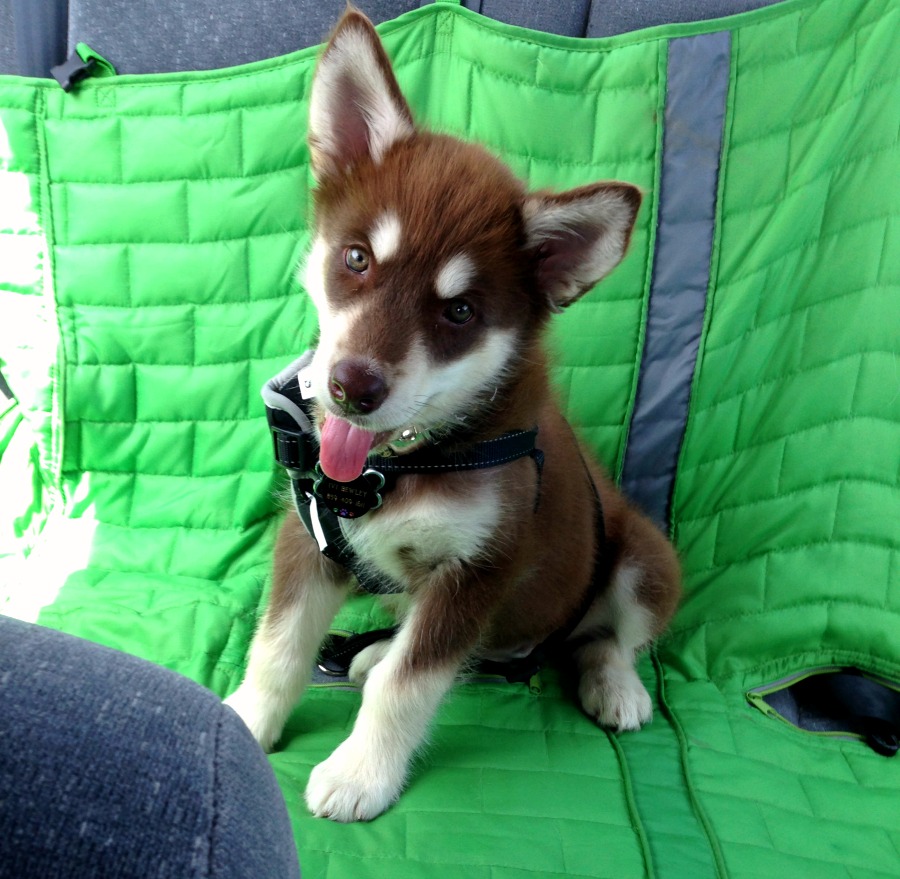
Why Reputable Breeders Are Important
As stated above, reputable breeders are critical for keeping breeds healthy, along with trying to annihilate diseases that affect the breed. While dogs going to show obviously need to be perfect, this isn’t where reputable breeder shine. Where their work truly shows is for working dogs. Reputable breeders usually have a purpose in mine when it comes to breeding. When a breeder says they are doing it solely for ‘love of the breed’ and can’t go further, that is usually a red flag. Reputable breeders are ALWAYS breeding with a certain characteristic in mind. For Rylie’s breeder, it is therapy dogs – either ESA or full on service dogs for those with PTSD. Ivi also came from a line that was breed for personality, dogs with a mindset that is great for therapy or working with children. Since I suffer from severe anxiety and possibly PTSD, my dogs are working toward being therapy dogs for me, and have volunteered in a children’s hospital.
While every breed has their own criteria for working, here are the working standards typically for Alaskan Malamutes:
- Therapy
- Pulling
- Search & Rescue
- Service Dogs
- Drug Dogs
- Military Support Dogs
Reputable breeders typically have one or a few of these things in mind when it comes to breeding. Their goal is to make the breed shine in their focus area. Without reputable breeders, these characteristics will eventually start disappearing, as they have with some other breeds.
As well, backyard breeders and puppy mills can do significant damage to a breed when they are allowed to spread their dogs. If they are looking for anything at all besides a quick sale, they tend to look for truly odd characteristics or purposely breed characteristics that can be harmful for the breed, to sell something ‘different’ or ‘exotic’. The best example I can think of with this is the slope that is now typical in USA-bred German Shepherds’ legs and back, which is often so pronounced they have difficulty walking and can cause spinal problems and pain as they grow. Traits that may make a dog look ‘pretty’ to some may also take years off their life, either directly increasing their chances of cancer or through other disabilities (many breeds of cat and dog link bright blue eyes with visual impairment or deafness, for instance). It is even leaving the area or purebreds now, with the ‘designer breed’ fad – producing dogs that too often have the problems of both breeds, and not a lot of the positive qualities. Reputable breeders do their best to maintain or improve existing lines, only cross-breeding when a breed is in danger of dying out, and with the support of their kennel registry to save the breed.
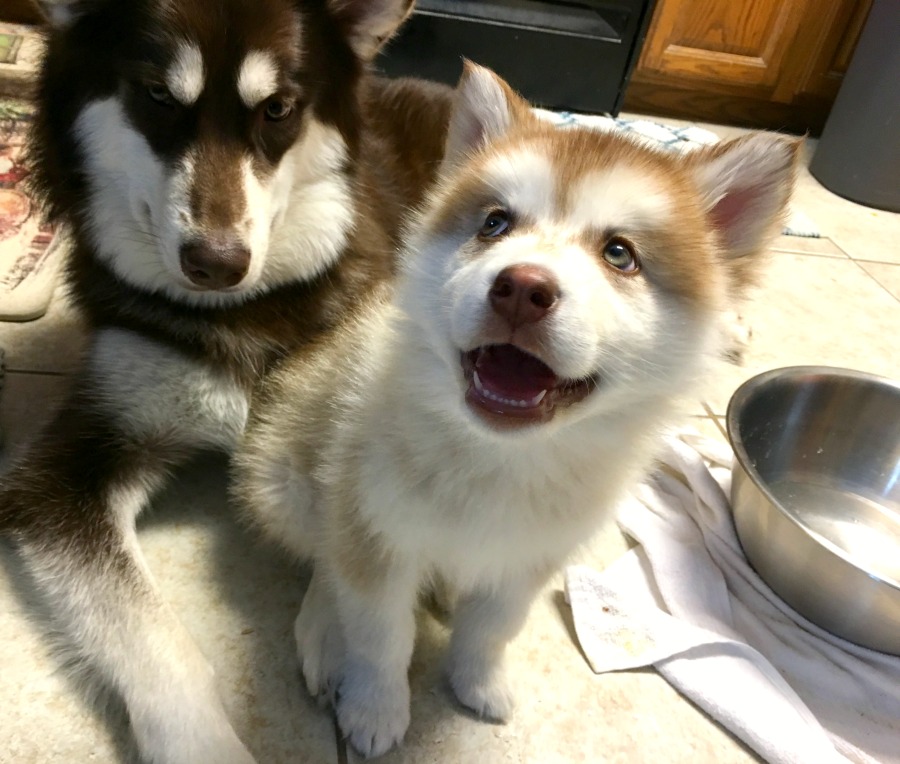
How Do I Find a Reputable Breeder?
When it comes to finding a reputable dog breeder, the starting point is the AKC. They have a database of recognized breeders. Next, don’t expect every breeder from the AKC to be a reputable breeder. Even though every reputable breeder will have AKC papers, this is only a starting point. I will sadly say that 80% or more of the breeders with the AKC do not meet the standards of a reputable breeder. They are often, unfortunately, backyard breeders who are breeding just to make money. The AKC, while they set the standards, are not a regulatory board and only do inspections of kennels every 2- 5 years. You can also join breed specific kennel clubs and/or Facebook groups to find reputable breeders. Experienced owners are happy to give referrals, and tell you about their favorite breeders…as well as the ones to avoid.
Once you contact the breeder, ask about their testing process. If you are looking for an Alaskan Malamute puppy, for example, ask if the parents are OFA tested. Try finding out as much as you can about the parents, the breeder’s specialty, how the dogs are cared for, and their personality. A reputable breeder will also be happy to have you visit their kennel and meet the parents – without exception, they are PROUD of their breeding program. Some will even DEMAND that you come and visit the dogs, to meet you and make sure you meet their standards as a responsible owner. The more picky the breeder is when it comes to the puppies and you, the more likely you are dealing with a reputable breeder.
Also, please don’t be offended if they aren’t always available. Most reputable breeders also have a day job since again, the best they hope for is that their breeding program mostly pays for itself. Many are in the red. You also want to make sure that the puppies are handled often, to make sure they will be a great fit with your family and…of course…kept in clean, comfortable conditions. Many breeders keep new pups 100% indoors, or at least in a separate, clean, isolated enclosure along with the mommy while they are nursing. There are definitely questions you should ask a reputable breeder, to make sure that they not a puppy mill or backyard breeder…
- Where do the puppies live?
- Where do mom & dad live?
- What are the parents’ personalities like?
- Are the puppies handled often?
- How are the puppies (if old enough) & parents around children/strangers/other animals?
- Do you have health & testing results available on the dogs?
- Does the breeder have references?
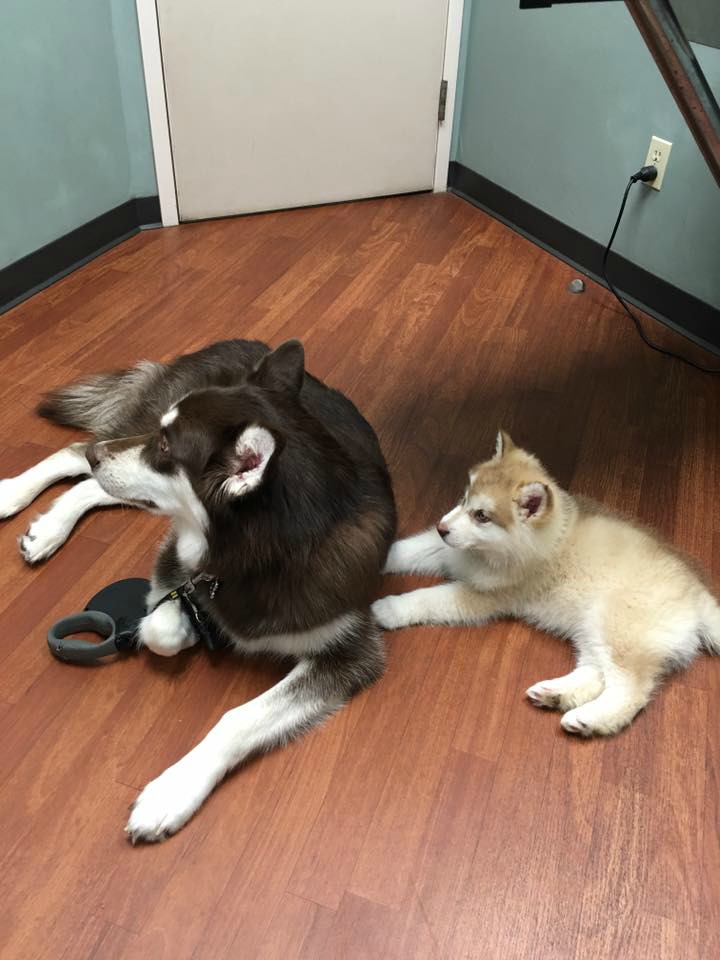
What Should I Expect From a Reputable Breeder?
To the surprise of many people, if you are a first time owner of the breed, the first thing a reputable breeder is going to do is try talking you out of a puppy. They are fast to talk about not just the good, but the bad, and the ugly when it comes to the breed. As experts, they will obviously talk about the good as well, but they will want you to know where they aren’t just a walk in the park, and want to make sure you did your research. They will also want to know a great deal about your life, your home environment, and if you have what it takes to be a good owner of the breed. For example, if you are a couch potato, you likely wouldn’t do well with a husky. If you are someone who is OCD and can’t stand shedding…or a very talkative dog, you won’t like an Alaskan Malamute. Assuming you have done the research, and you clear this hurdle, you will likely be put on a waiting list.
Probably the biggest shock to most people working with a reputable breeder is that they don’t always have puppies. They have limited pairings and in many cases, only have puppies a few times a year, even with lots of dogs in their kennel. This is due to the fact that reputable breeders only breed a female once a year or in many cases, only a few times in their entire life before spaying. Care of the females is of the utmost importance to reputable breeders for their health and that of their puppies. Remember, these are also their personal pets, and more often, family members. With our first malamute, we were on a waiting list for over three years.
Most will also want you to visit their kennel. For those who are very far away, some will make exceptions, but they want you to meet you and show off their kennel. They also want to be extremely transparent, having you meet at least one of the parents and the puppies, if they are old enough (no one wants to make mom uncomfortable). When it is time to pick up your puppy, also expect a very extensive contract. It is extremely rare to get more than limited registration (this means you can’t breed your dog, and that they must be spayed/neutered by a certain time). The contract is another signal of a good breeder – they also make clear that if you decide the puppy doesn’t work for any reason, you MUST give it back to the breeder so they can find it a good home rather than reselling it or dumping the pup in a shelter. A good breeder will fight to protect dogs from their kennel, and they will bring breach of this contract to court to protect a dog from their lines. Don’t let this scare you – remember it is about protecting the animals they chose to breed, and being responsible for them. Most reputable breeders are nice people, and may become like extended family to a responsible owner. They want to know how their puppies do, and will become a contact in your life. Rylie’s breeder has become a family friend, for example; we talk regularly. Also, we were in contact with Reya’s breeder throughout her life – both love (or loved) seeing their pups grow and model here on Budget Earth! They also want to be there to give you any advice since again, they are experts, and fanatic about the breed.
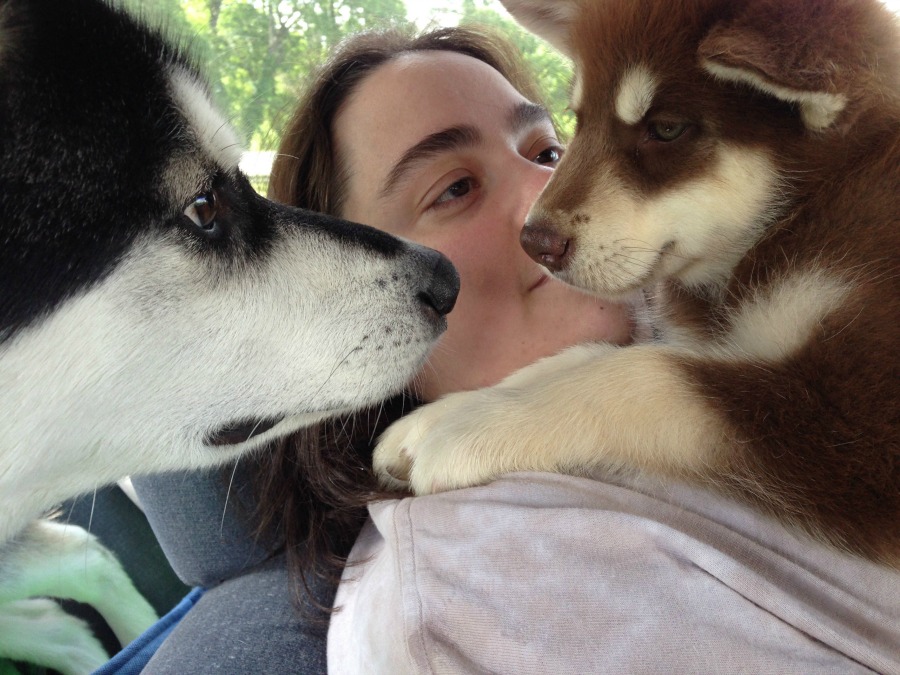
Should I Get a Puppy From a Reputable Breeder or Rescue?
I will be totally honest with everyone, I think choosing to get a puppy from a reputable breeder or rescue is an extremely personal choice. I am a big supporter of both. For those looking for a working dog, service dog, therapy dog, predictable personality, or certain breed traits, you will likely want to work with a reputable breeder to best select for the physical and mental traits needed. If you have decided your family needs a family pet, now, and you are unwilling to wait, rescue is likely the best choice for you.
There is no reason – period – to ever buy a puppy from a pet store. 99 times out of a 100, a pet store puppy will be from a puppy mill. The only times I am supportive of getting a puppy from a pet store is if it is from a rescue. Even then, it is important to research a rescue before buying, since rescue scams are real. Rescue has become a major business in the US, with the ASPCA and many other organizations bringing in big money, using marketing campaigns such as ‘adopt don’t shop’ to continue bringing in millions of dollars, with very little of it going to the animals they are rescuing. Many adopters are also shocked when adoptions is hundreds of dollars, sometimes at or above the cost of a purebred, with a very detailed background check attached and a deposit that is usually not returnable. Personally, I think you are better off adopting from your local shelter.
That being said, not all rescues are that way. Look for breed specific rescues who are passionate about the breed, as well as local rescues. These rescues don’t have giant budgets, or giant advertising, and are usually 100% volunteer. These are the ones I usually try helping since the majority of the money goes back to the animals being rescued, and they try hard to keep costs down for new pet owners. These are the rescues you will most often see volunteering at PetSmart or your local pet stores. If you want to find a local group, there are amazing Facebook groups out there that will direct you to breed rescues – don’t forget you can (and should) ask your local vet – any shelter they work with they will know both the good and the bad about, most likely.
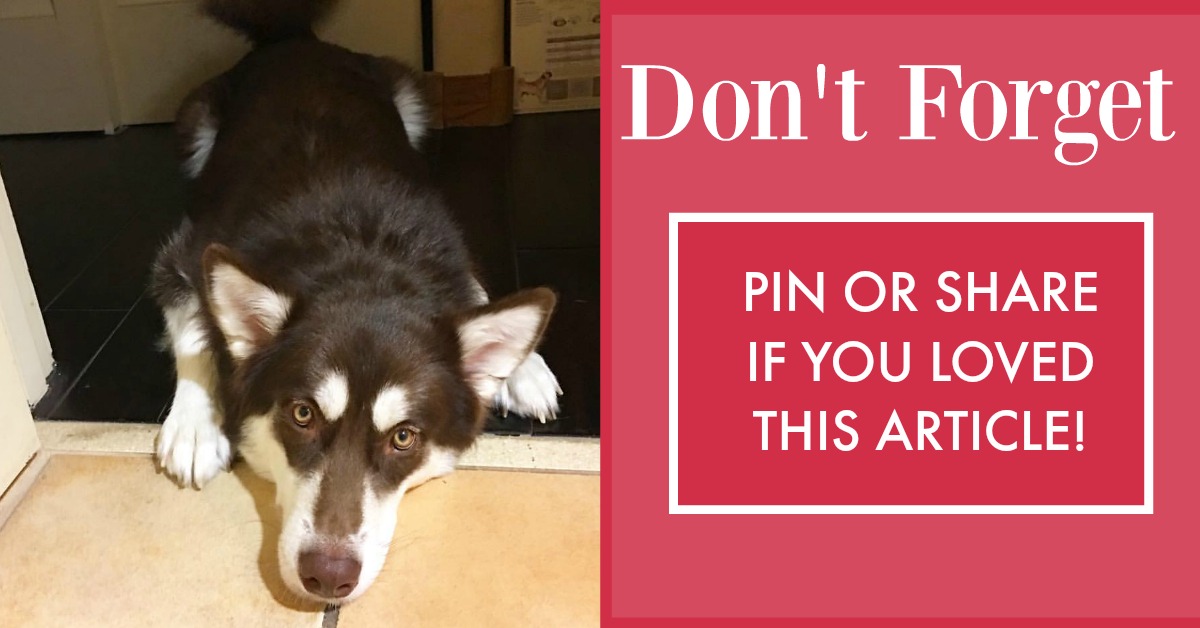
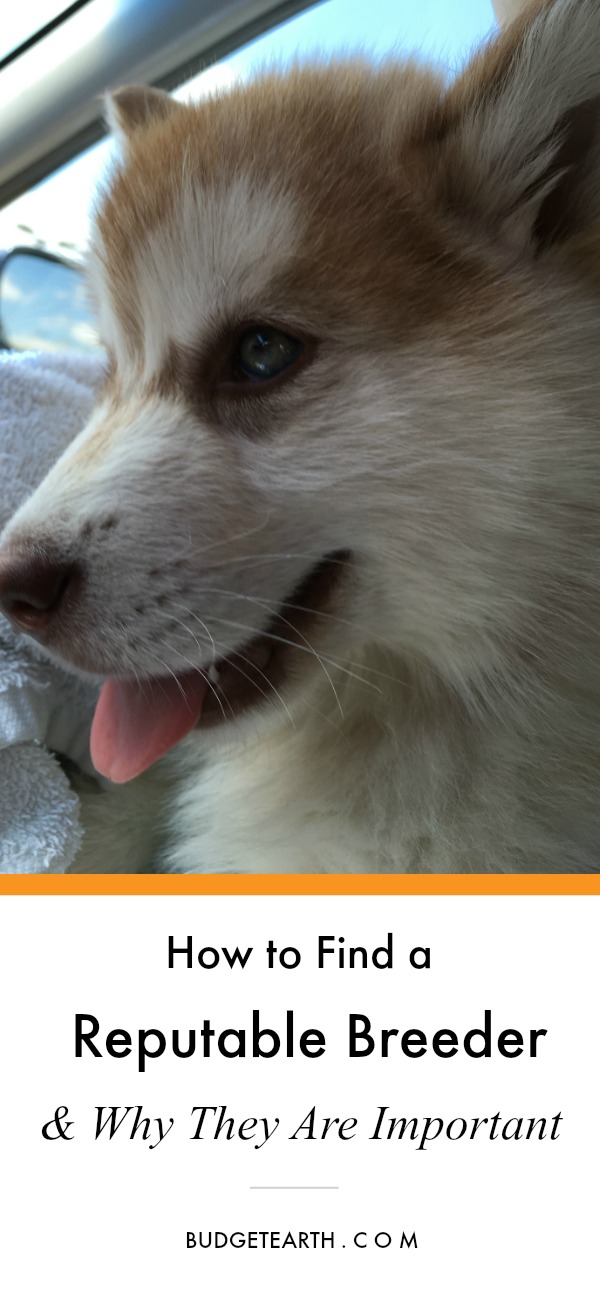
Want to learn more on this topic? Maybe have some breed specific questions? We are excited to be collaborating with three well known pet bloggers to help educate pet parents on this important topic. Make sure to check out their articles below!

Is It Okay To Get A Dog From a Dog Breeder – by Carol Bryant at Fidose of Reality
The Fallacy of Dog Rescue Why Reputable Dog Breeder Are NOT the Problem – by Stephanie Seger at Big Dog Mom
Breeding Great Pyrenees: Dog Job Matter? – by Kelsie McKenzie at It’s Dog or Nothing
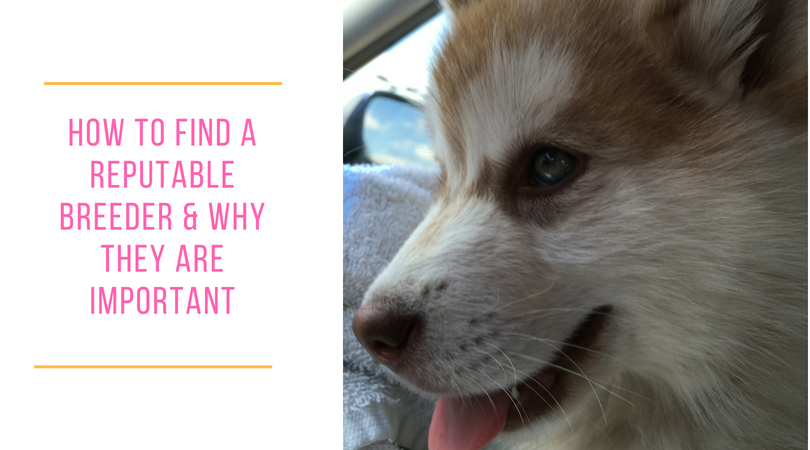

What a terrific piece, Susan! You touched on every aspect of this issue that is important for people to consider BEFORE they get a puppy. There is absolutely nothing wrong with buying a puppy from a reputable breeder and you give great detail on how people can decipher which breeders are reputable and which aren’t. I couldn’t agree with you more about what some breeders are doing to formerly magnificent breeds like GSD’s. It is absolutely heartbreaking to go to a dog show and see these poor, crippled dogs run around the ring with their entire hocks flat on the ground. I, like you, support both rescue and responsible breeding. I love a well-bred purebred dog and I have very high standards with what I am looking for when I make an investment in a new puppy, so I have always gone the reputable breeder route. That said, when my kids are out of the house, I can absolutely see me getting into rescue. For now, after having dealt with a human aggressive dog, I won’t risk it. That’s me. My choice. I love and support others for whatever choice they make.
Same. I worked a lot with rescue dogs when I was in college and I loved them. Most of our dogs growing up were actually rescue, but not what most would consider. My dad took in retired military dogs and tried getting them ready for ‘civilian life’. It wasn’t easy and not all of them COULD be in children homes. We actually weren’t allowed near the dogs, which as you could imagine with how much I loved dogs, wasn’t easy. After that, we had rescue cats and dogs, with some of them being very reactive or people aggressive due to what happened to them as puppies. Being someone who is around children and constantly traveling, it isn’t a risk I want to take. At some point I will probably work with foster malamutes (if I can talk my husband into it). For my own dogs though – reputable breeders, all the way, especially after finding out I may have gotten a dog from a backyard breeder who seemed like a reputable breeder. That is another blog post coming soon!
Wow, this is an amazing post. I had always thought I would only consider reputable breeders, but really had no basis to have a good idea what that means. You should write a book!
I totally agree with you. I chose to get my last doggy from a breeder but I honestly think getting a rescue is great. These babies need a home. It is a personal choice.
Good to pay attention and ask questions. I know of a friend who had been scammed twice from breeders
We have always rescued animals. I know that we eventually would like to geta purebred though. this was really helpful to think about!
We have done both and I will say they have all been great animals. I think reputable breeders and reputable rescues are what we need to make the pet world a better place. <3
Puppy mills are a big problem in my area. I’m still a fan of the mutt from the pound.
I have never bought a dog from a breeder but this is such a comprehensive list of all the information that I or anyone would need before proceeding.
This is sure a lot of information to take in. Then again, if you are looking for the best possible dog then this is what has to be done.